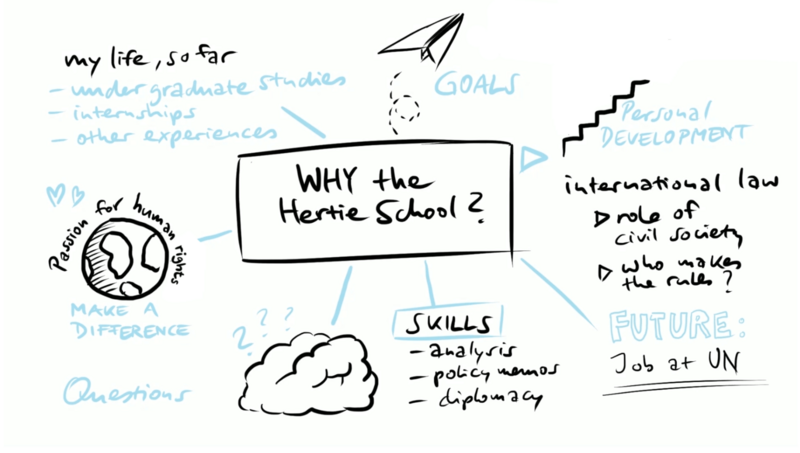
This week in our application tips series, we tackle the task of writing a compelling letter of motivation and provide useful tips to help you write. You can apply for the Master of International Affairs (MIA), the Master of Public Policy (MPP) and the Master of Data Science for Public Policy (MDS) until 1 May 2022.
One of the most important documents in your application is your letter of motivation. While your CV and transcripts outline your experience and achievements, only your motivation letter gives these credentials context and shows us your personality, ambitions and suitability for the Hertie School.
Go beyond the experiences listed in your CV
Weighted with 20% in the selection process, the letter of motivation is your chance to convince the admissions committee, in 500 to 900 words, why you should be part of the next cohort. We encourage not just restating what’s in your CV, but showing us how your experiences have and will contribute to your personal and professional development. Remember to write in your voice, not the voice you think we want to hear. We want to get a sense of who you are, what drives you, what fires up your engine.
Needless to say, appealing formatting and correct grammar are essential. Make sure your letter is free of typos and keep the formatting clean and simple.
Important questions to ask yourself
If you’re not sure where to start, it could be helpful to take some time to reflect on yourself, your past experiences and your interests. Consider jotting down some answers to the following questions:
- What in particular about the master’s programme excites you?
- Why, at this point in time, do you want to pursue a master’s programme at our university?
- What goals or plans do you have for your career after you graduate?
- Why do you think you’d be a good fit for the Hertie School, and why would the Hertie School be a good fit for you?
- Are there any significant life experiences that have shaped your worldview?
That’s just to help you get started. Of course, you don’t need to answer every one of these questions in your actual letter of motivation. The point is simply that we’re looking for specific details that show us what drives you to be engaged. A statement that is too general or lacks clear examples and persuasive arguments can sink an otherwise strong application. Equally, a particularly compelling letter of motivation can help push your application to the top of the stack.
Next up in the series: What you should consider when submitting academic transcripts.
